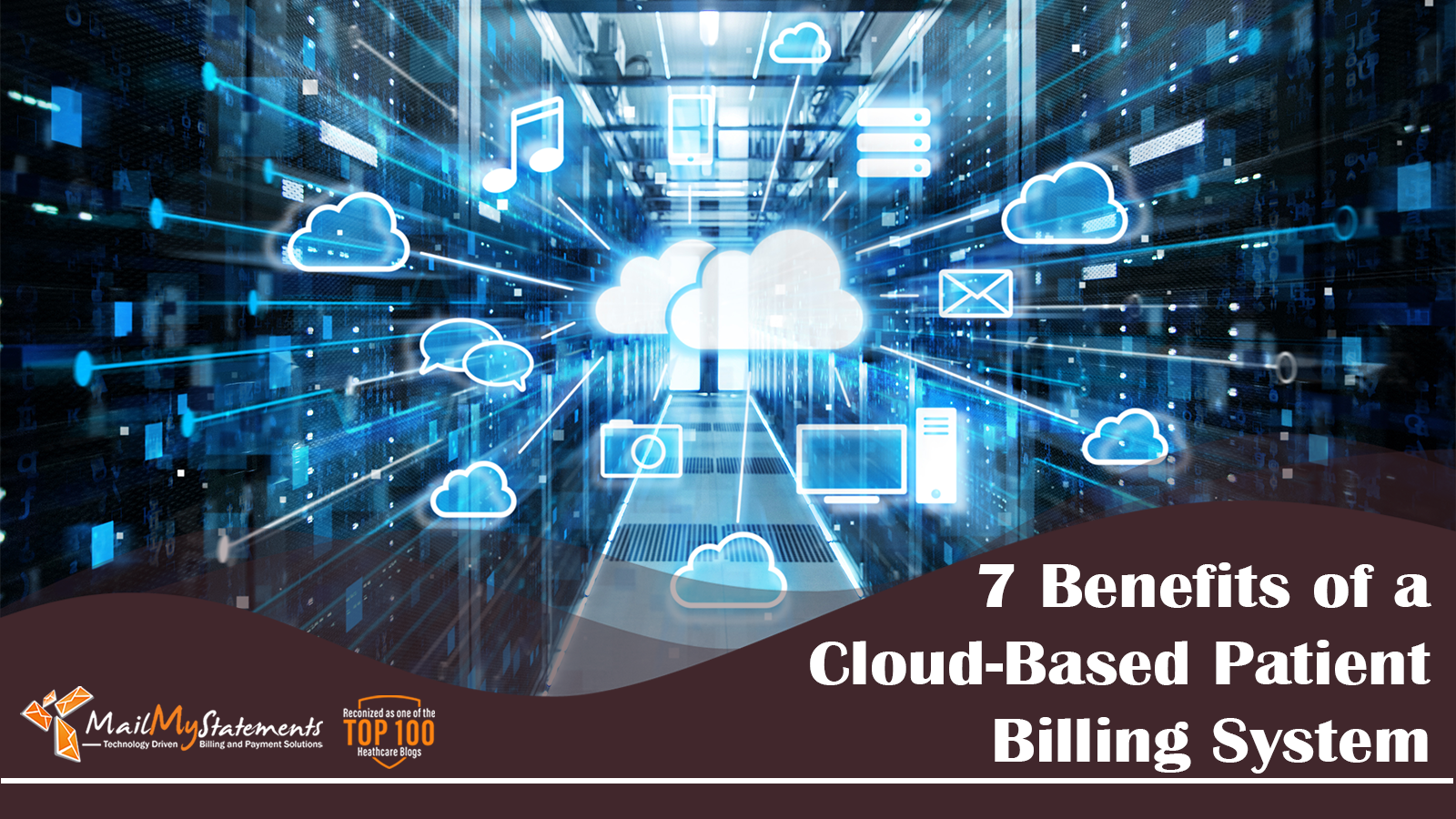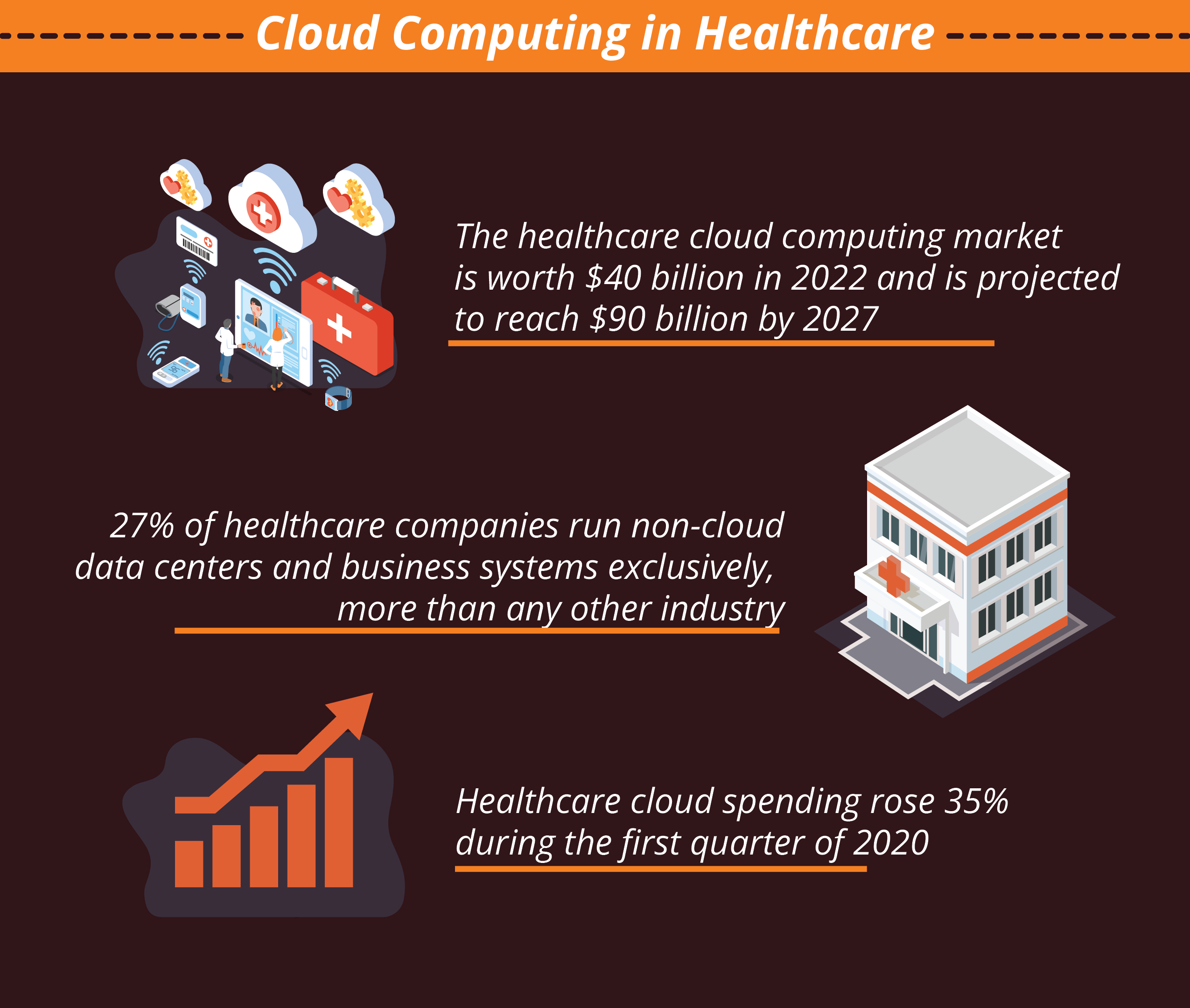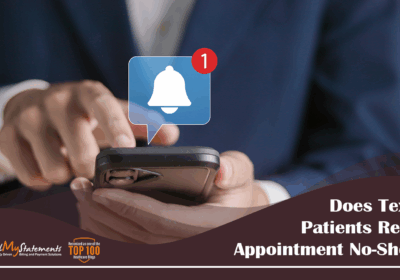7 Benefits of a Cloud-Based Patient Billing System

As healthcare organizations seek to optimize their revenue cycle management, cloud-based billing platforms have emerged as a transformative solution. With the healthcare cloud computing market projected to grow significantly to $90 billion by 2027, it’s clear that these platforms offer substantial benefits.
Cloud-based billing solutions provide a flexible and scalable infrastructure that can be tailored to meet the specific needs of your practice or department. By transitioning from on-premises servers to the cloud, you can unlock a range of advantages.

Defining cloud technology in the context of medical billing
By migrating your billing software and systems to the cloud, your team can securely store, access, and manage all relevant files remotely. Upon logging into your practice’s cloud platform, you will be presented with a customized environment that provides streamlined access to necessary forms, files, and workflows. Many cloud-based solutions offer advanced automation capabilities, enabling your staff to save time on repetitive tasks and maximize the return on your investment in revenue cycle technology.
Benefits of cloud-based patient billing for revenue management
Healthcare providers typically see a substantial return on the investment in cloud billing platforms. For example, Healthcare Finance reported that the cloud transition of Geisinger, a major health system with more than 24,000 employees, will result in millions of dollars of annual savings.
Improved Patient Experience
Cloud-based billing platforms offer several features that can significantly improve the patient experience:
- Online Patient Portal: Provide patients with a secure online portal where they can set digital communication preferences, view their bills, make payments, and access other account information. This empowers patients to manage their healthcare finances conveniently and efficiently.
- Multiple Payment Options: Offer a variety of payment options, including mobile payments, payment plans, chat2pay, and more. This flexibility ensures that patients can choose the payment method that best suits their preferences.
- Automated Reminders and Notifications: Send automated SMS text message reminders and notifications to patients about upcoming or missed payments. This prevents late payments and reduces the administrative burden on staff.
- Secure Payment Processing: Implement robust security measures to protect patient payment information and prevent fraud. This builds trust with patients and ensures their peace of mind.
- Personalized Communication: Tailor billing statements and communications to the individual needs and preferences of each patient. This personalized approach can improve patient satisfaction and engagement.
By providing a seamless and convenient payment experience, cloud-based billing platforms can help build stronger relationships with patients, increase patient satisfaction, and improve loyalty. This can ultimately lead to increased revenue and a more positive reputation for your healthcare practice.
Reduced need for on-site IT
While transitioning to the cloud does require an initial investment, it tends to cost less than the upfront and continual expense of maintaining a secure, up-to-date local server with a robust data duplication system. The vendor absorbs the ownership and cost of access management, protection, collection, and storage.
You no longer need to worry about whether your system has the latest patches to comply with security and privacy standards, particularly in the highly regulated healthcare landscape. In fact, you may be able to manage cloud-based patient billing with limited in-house IT support since the cloud provider is responsible for updating, testing, configuring, securing, administering, and maintaining the billing environment.
Seamless collaboration and access

When patient billing exists on the cloud, healthcare providers can easily access detailed patient data from different sources, even when they practice in multiple locations. Staff with the proper credentials can connect with the cloud system as needed from any location with any mobile or desktop device. Practices with multiple locations save money by avoiding the need to purchase multiple licenses for local software systems compared to a single license for cloud billing. This collaborative environment also supports continuity of care across a patient’s healthcare team, which can, in turn, improve treatment outcomes.
Healthcare providers can connect with their patients and access billing information as well as medical records from anywhere. This approach offers data-driven care that allows the physician to personalize treatments and techniques for each patient, ideally resulting in a higher quality of care. It also allows the billing department to determine patient statement and payment preferences and act accordingly, thus improving the rate of collections.
Advanced machine learning capabilities
The data-rich cloud environment facilitates artificial intelligence (AI) and other forms of machine learning (ML). These capabilities can potentially prevent medical billing and coding errors that delay claims reimbursement, a significant source of revenue loss for most healthcare providers. A report from IBM indicates that AI-assisted platforms can help coders find the correct codes quickly, which improves productivity while also allowing your billing teams to focus on other ways to boost efficiency and better serve your patients (a key component of retention for medical practices).
Improved data security
Cloud-based servers tend to provide enhanced security, safety, and privacy compared to traditional billing systems. Your practice can select a cloud provider that maintains HIPAA compliance so identifiable patient health information remains encrypted and shielded from unauthorized access. Most reputable cloud software companies equip their platforms with advanced encryption and security far beyond what the typical practice uses with an on-site server. Practices that still keep patient records in paper files also run the risk of destruction by flood or fire.
Effortless information back-up

Because the data lives in the cloud, you don’t have to worry about on-site server failure, cyberattack, or natural disasters that could instantly wipe out your files or reveal sensitive information. Multiple copies of cloud files remain segmented from one another to keep at least one version of your data safe, even in the event of a major issue. This disseminated approach, only possible in the cloud, ensures that you’ll always be able to keep your revenue cycle running smoothing.
Automated scalability
As your practice expands, whether you’re adding new service lines, providers, or locations, you won’t need to worry about outgrowing your on-site server. The cloud automatically allocates the necessary resources for your data needs, creating a scalable solution that can be updated and augmented with limited additional investment. This is especially important for medical practices since each patient’s electronic health record expands over the years, and the total population your practice serves may increase as well.
Final Thoughts
Partner with MailMyStatements to propel your practice’s billing process into a personalized cloud platform. We facilitate this process so your team can focus on your core offerings as a healthcare service provider. Get in touch with us today.
![]()



